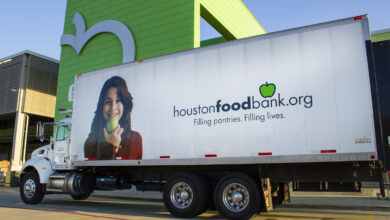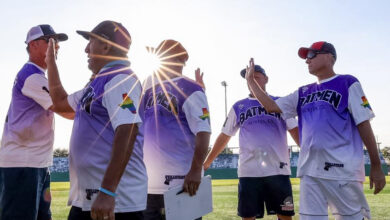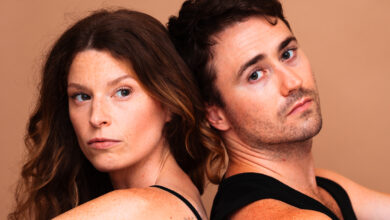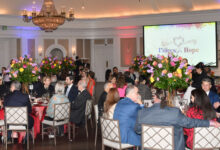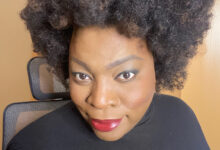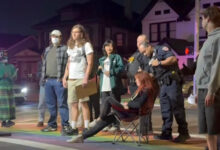Three Queer Women Share What Equality Means in 2025
For Women’s Equality Day, they discuss what’s still worth fighting for.
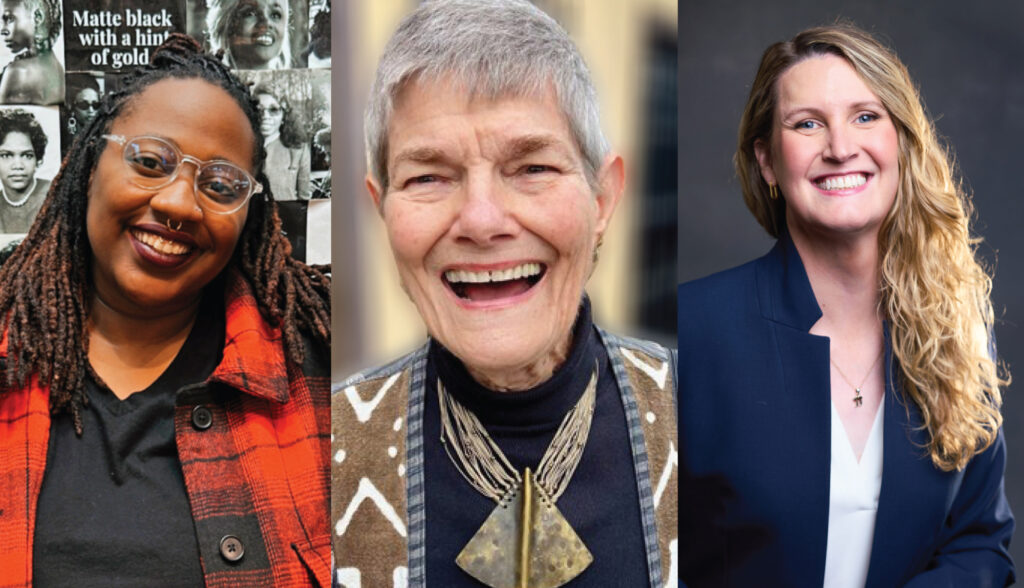
Women’s Equality Day is celebrated in the United States on August 26 to commemorate the 1920 adoption of the 19th Amendment to the United States Constitution, which prohibits the states and the federal government from denying the right to vote to citizens of the United States on the basis of sex. Not all women were able to exercise this right immediately, and many faced ongoing barriers and discrimination based on race, class, and other factors.
To learn more about the status of women’s rights—and the status of rights for lesbian, bisexual, and transgender women—OutSmart spoke with three local women who share their thoughts on full equality for all women.
Believe Women: Avery Belyeu
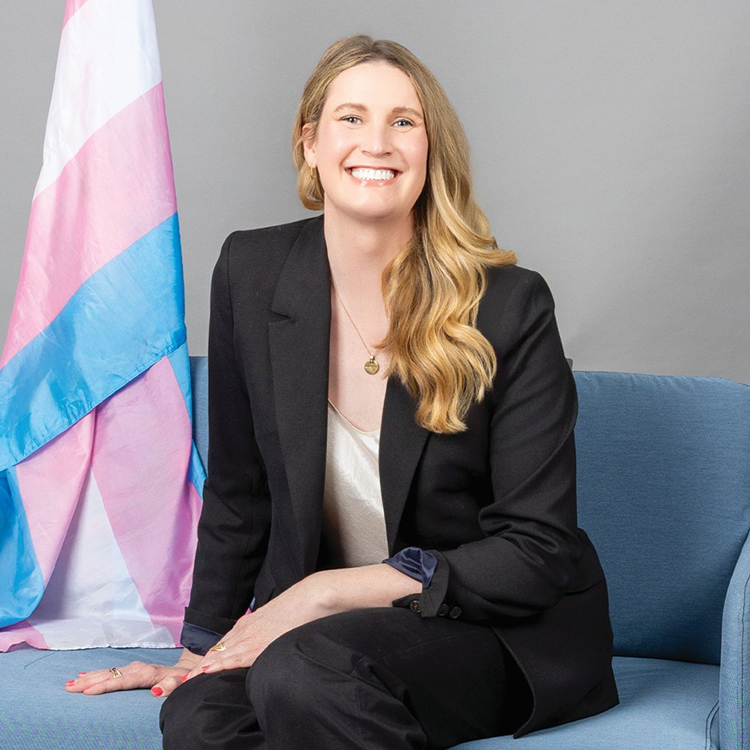
Avery Belyeu identifies as a queer and trans woman. She has been the CEO of the Montrose Center for more than a year.
Belyeu sees the top three feminist issues as social equity, legal equity, and safety and autonomy. “Misogyny by a patriarchy is very much real,” she emphasizes. “Until we deal with deeply embedded cultural challenges related to women being devalued and understood as lesser than, we’re not going to achieve full equality. “It wasn’t that long ago that women could not have a credit card or take out a loan in their own name. The Equal Rights Amendment has still not been ratified in this country. And we see the ways that women’s rights are currently being eroded.”
“Any woman will tell you that if they’re walking in a parking lot late at night by themselves,” she continues, “they still very much check over their shoulder and hold their keys in their hands in a certain way to protect themselves in case they’re attacked. Women do not have bodily autonomy, and decision makers about women’s bodies are oftentimes not women, but men.”
For queer women, Belyeu sees the top issues as full inclusion in women’s spaces, equity and equality in employment, and physical safety.
“We have a long history of there being a challenge to fully include lesbian, bisexual, and now particularly transgender women in the conversation around women’s rights. People would be surprised how many women are still comfortable with excluding some women from women’s spaces,” she asserts.
“I think particularly for our community, there continues to be workplace discrimination. And that’s true for everybody in our community, whatever part of the alphabet you are. There are unspoken rules of the game of how people progress in their careers. And oftentimes, lesbian and bisexual women and trans women are not granted equal access to the social components of workplaces that allow progression, or they’re purposefully excluded.
“As leader of the Montrose Center,” she continues, “I hear this a lot from transgender people here in Houston—that they will show up to job interviews and be immediately rejected when the employer realizes that they are trans. I hear that from a lot of our youth. They’re really trying to get on their feet.”
“The women in our community have a very particular and unique concern as it relates to safety,” says Belyeu. “We are in an era when our young LBTQ people are particularly under attack in their schools. They have a lack of safety and a removal of things that would keep them safe, such as the ability to gather in gay-straight alliances. For trans women, physical safety continues to be such a concern as they age.“
“We have so much work to do in hearts and minds to create full equality,” Belyeu asserts. “Something everyone can do is lift up the voices of women. Let women have the mic, shine a light, listen to them when women speak—and believe women.”
“Being a transgender woman, and having been raised as a young boy, I got to see the differences between how a young boy is raised and a young girl is raised. I’ve seen both sides now,” she reflects.
Lifting Up Every Voice: Faith Northern
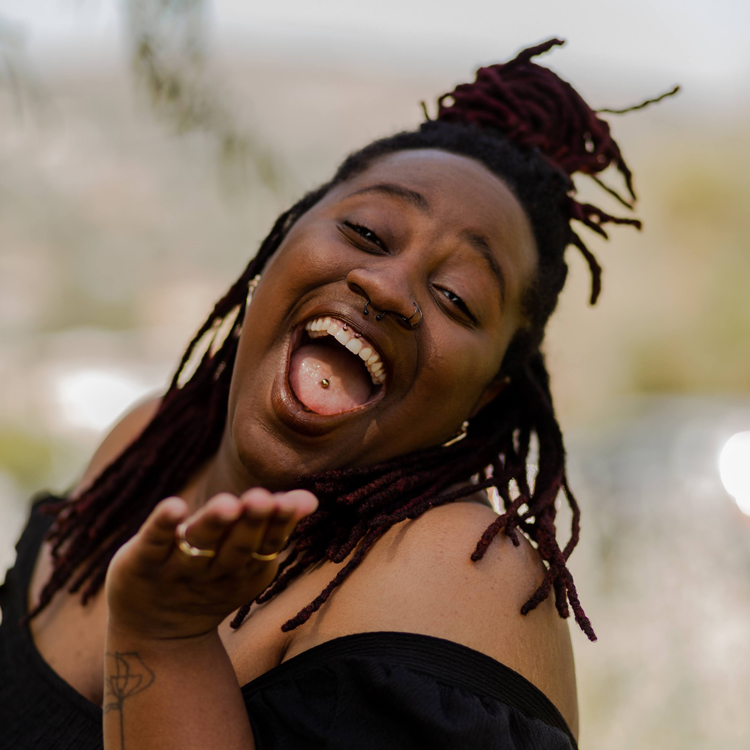
Faith Northern identifies as a lesbian, and for the last two years has been a member of the Women’s Group that meets at Houston’s First Unitarian Church. During the group’s recent 50th anniversary celebration, Northern enjoyed being the emcee.
Northern views the top feminist issues as a sense of collective liberation by recognizing intersectionality; uplifting more Black, brown, and indigenous voices; and advocating for health equality. “We should not focus on only one group’s oppression or only one group’s lack of equality, but be able to give voice to every group’s issues and not see it as competitive,” she says.
“Black women and women of color can lead movements, and it’s for the betterment of everyone. Women of color have been on the front lines for everyone. So uplifting those voices should influence how we continue our movement toward equality. Previous waves of feminism haven’t included Black women or women of color. That has been a big blind spot. Whether it was a passive choice or an active choice, it definitely happened.”
“We need to be aware of the things that impact different communities disproportionately,” she adds, “like how HIV disproportionately impacts Black women, or when additional issues of disability and ableism and fat phobia—all of those things—play on top of each other when it comes to health equality.”
Northern sees the top issues for LBTQ women as recognition that intersectionality plays a major role. “When you add other intersectional issues on top of an already oppressed, marginalized identity, it affects how we embody our queerness,” she says.
“We don’t need to change ourselves to be more palatable. There is so much beauty in our being different and in our being against the norm. We should really appreciate those things. Transphobia is not just a problem for trans people and for the trans community, but it’s something for all of us to fight against,” she adds.
Northern is a strong advocate of recognizing and supporting feminine experience. “One of the biggest, yet simplest things that supporters of women’s equality can do,” she says, “is believing women’s lived experiences—not thinking that you know better or best what to say or do or advocate for, but really listening to women. Allowing women to be at the forefront of conversations.”
Equality Hurts No One: Alice McCarthy
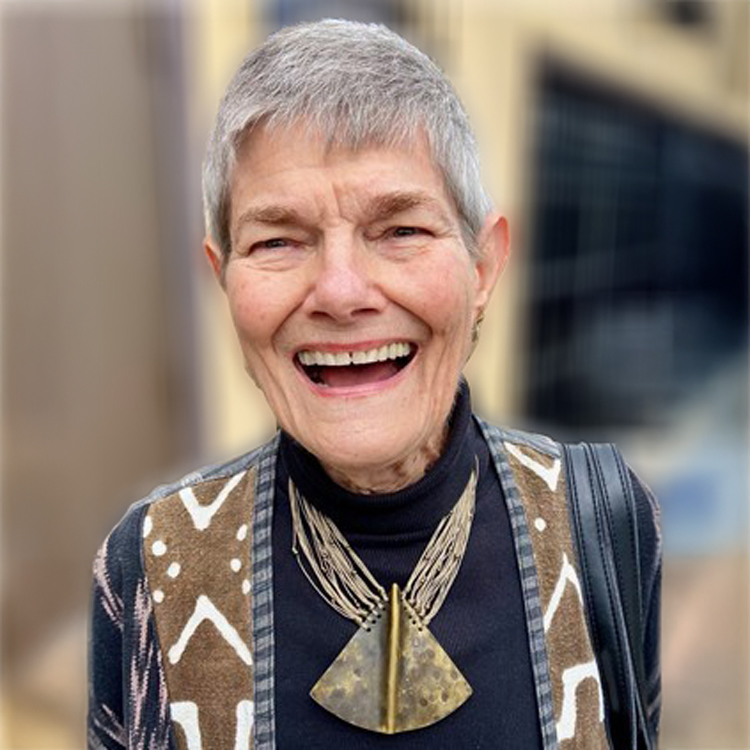
Alice McCarthy, the mother of a lesbian daughter, identifies as a bisexual woman. Long active in the Houston area women’s equality movement, she has been involved in PFLAG-Houston for decades and is a member of LOAF (Lesbians Over Age Fifty). She feels that the most important feminist issues that need resolution are freedom of bodily choice, equal treatment in voting, and healthcare equity.
In 2022, a conservative Supreme Court reversed the Roe v. Wade decision after 49 years, with deep implications for women’s rights and public health.
McCarthy is frustrated with the games now being played when women vote. Women change their names due to marriage, divorce, or other reasons. Now voters may be required to provide documentation to prove their identity if their current name doesn’t match the name on their ID or voter registration. This can disproportionately affect women, who are more likely to change their names than men.
McCarthy points out that most health research is done with a focus on men, presumably assuming that results are equally applicable to women.
Many grooming and cosmetic products are packaged in pink and given a pretty name to appeal to women, McCarthy notes. “But they charge more for the same thing,” she says, suggesting that people can see for themselves just by checking out the difference in the prices of disposable razors for men and for women.
The top issues that McCarthy sees for LBTQ women are equal treatment in all civil-rights issues, equality in military service, and fair treatment of transgender people.
“There should be equality in marriage and divorce, in renting a house, in choosing a name, and adoption access for LBTQ couples—or any single LBTQ woman, for that matter,” McCarthy believes. “They should all be judged equally based on the kind of home they would provide for a child. If someone wants to serve in the military, they should be treated with equality.”
“Trans people are discriminated against so brutally,” she adds. “We need to allow people to use their restroom of choice. Some people who say they are super-Christian use that as a shield for their own uncertainties and hatreds.”
McCarthy emphasizes that the most important thing that supporters of the women’s communities can do is to vote—and have a good idea of who and what they are voting for. “The whole feminist movement benefits everyone. Equality hurts no one,” she says. “There is a sense of entitlement that really needs to be done away with.”
She feels that the current administration wants to train people to be good workers, good cogs in a wheel, but not to think critically, and not to be involved with the arts in any way, so they won’t be disruptive. “The best I could wish for,” says McCarthy, “is that people are open to at least listen to others.”


